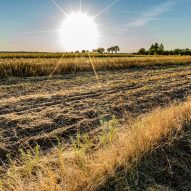 September 19, 2023 12:00 am
Published by Climate Extremes
September 19, 2023 12:00 am
Published by Climate Extremes
New research finds a significant interaction between the El Niño-Southern Oscillation and Madden-Julian Oscillation, with major implications for Northern Australia.
 August 8, 2023 8:11 am
Published by Climate Extremes
August 8, 2023 8:11 am
Published by Climate Extremes
The presence of groundwater in forested areas reduces rainfall loss in wet periods and maintains soil moisture in dry periods.
 August 8, 2023 8:05 am
Published by Climate Extremes
August 8, 2023 8:05 am
Published by Climate Extremes
This study is an example how models help us to examine and understand how ocean currents behave and how they impact our environment.
 March 31, 2023 1:23 pm
Published by Climate Extremes
March 31, 2023 1:23 pm
Published by Climate Extremes
As the tropical climate warms, the intensity of rainfall and winds associated with the Madden-Julian Oscillation as well as their patterns may change, leading to intense debate and scrutiny of how extratropical weather will be affected.
 November 10, 2022 11:01 pm
Published by Climate Extremes
November 10, 2022 11:01 pm
Published by Climate Extremes
The findings have major implications for Sydney's preparedness for flash flooding and associated impacts in the future.
 November 24, 2021 2:02 pm
Published by Jenny Rislund
November 24, 2021 2:02 pm
Published by Jenny Rislund
This paper focuses on a case study to provide a methodology for how the costs associated with an extreme weather event may be shared between citizens and envisage how such a system could look in future.
 November 24, 2021 12:44 pm
Published by Jenny Rislund
November 24, 2021 12:44 pm
Published by Jenny Rislund
Strong ocean currents are found on the western side of the ocean basins, which flow from the tropics toward the poles in both hemispheres. These western boundary currents have shown strong changes in the last few decades, resulting in intensified ocean warming and are projected to amplify further in the future.
 November 24, 2021 12:09 pm
Published by Jenny Rislund
November 24, 2021 12:09 pm
Published by Jenny Rislund
90% of the heat trapped on Earth by anthropogenic greenhouse gasses is absorbed by the ocean, with the unfortunate by-product of thermosteric sea level rise - as the ocean warms, it expands. Therefore, it is essential that we can accurately measure how much heat the ocean is absorbing over time.
 November 24, 2021 11:33 am
Published by Jenny Rislund
November 24, 2021 11:33 am
Published by Jenny Rislund
This study assesses long-term changes in Australia’s future photovoltaic potential and the effects of projected changes in our climate on PV power generation capacity for the near and far-future periods.
 November 1, 2021 4:57 pm
Published by Jenny Rislund
November 1, 2021 4:57 pm
Published by Jenny Rislund
The Weddell Gyre, located east of the Antarctic Peninsula, is one of the largest features of the ocean circulation of the Southern Hemisphere. A deeper understanding of the dynamics in this remote region will shed light on the role of the gyre in our present climate and help us understand its potential evolution with climate change.










